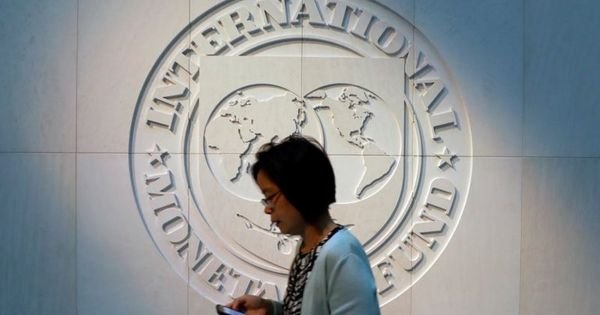IMF foresees gloomy near future for Argentina
[ad_1]
IMF foresees gloomy near future for Argentina
Latin America and the Caribbean were also forecast by the FMI to suffer an economic slowdown driven mainly by Argentina’s downward revision
Following President Javier Milei’s latest measures, the International Monetary Fund (IMF) Tuesday reviewed for the worse its projections for Argentina’s economy this year (-2.8%) and forecasted inflation would remain high in the short term.
The previous World Economic Outlook released in October had predicted Argentina would grow by 2.8% this year. The figure is the same, although now it was written in red ink. For 2025, the IMF foresees a 5% advance in the country’s GDP.
The revision of the forecast for 2024 is due to Argentina’s negative growth in the context of a significant adjustment of economic policy to restore macroeconomic stability, the IMF noted.
The realignment of relative prices and the removal of former price controls, the latest currency depreciation, and its pass-through to prices are expected to push up inflation in the near term, the global credit agency went on.
For the world’s economy, the IMF foresees a 3.1% growth in 2024 and 3.2% in 2025, 0.2 points above October’s estimates. The improvement is linked to stronger-than-expected resilience in the US and several emerging market economies, as well as fiscal stimulus in China. The projected global growth for both this year and next due to high central bank policy rates to combat inflation, reduced fiscal stimulus and high levels of indebtedness, as well as low underlying productivity growth year is lower than the historical average of 3.8% per year between 2000 and 2019.
The global economy is approaching a soft landing, but risks persist, IMF Chief Economist Pierre-Olivier Gourinchas underlined. The clouds are beginning to dissipate. The global economy begins the final descent toward a soft landing, with inflation declining steadily and growth holding up. But the pace of expansion remains sluggish and turbulence is possible, he added.
Regarding Latin America and the Caribbean, the report predicted a GDP fall of 1.9% this year; while Brazil is slated to grow by 1.7% as global inflation falls to 5.8% in 2024 and 4.4% in 2025. In this scenario, economic expansion would slow from 2.5% in 2023 to 1.9% in 2024, a decline of 0.4 percentage points from the original forecast, largely due to Argentina’s downward revision. Nevertheless, the region’s expansion would return to 2.5% in 2025, the Fund projects.
In many cases, as inflation declines and economies are better able to absorb the effects of fiscal adjustment, renewed attention to fiscal consolidation is needed to restore fiscal capacity to address future shocks, raise revenues for new spending priorities, and curb the increase in public debt, the Outlook also noted.
The IMF also warned of several downside risks to the economy, including the possibility of further escalation of commodity prices due to geopolitical shocks, such as the continuation of the attacks in the Red Sea, a persistence in underlying inflation that would lead to maintaining high rates for longer and a deepening of the complications of the real estate sector in China.
The report also warned about the some 6,200 new restrictions imposed in the last two years, due to which trade will grow 3.3% this year, below the historical 4.9%.
[ad_2]
Source link




